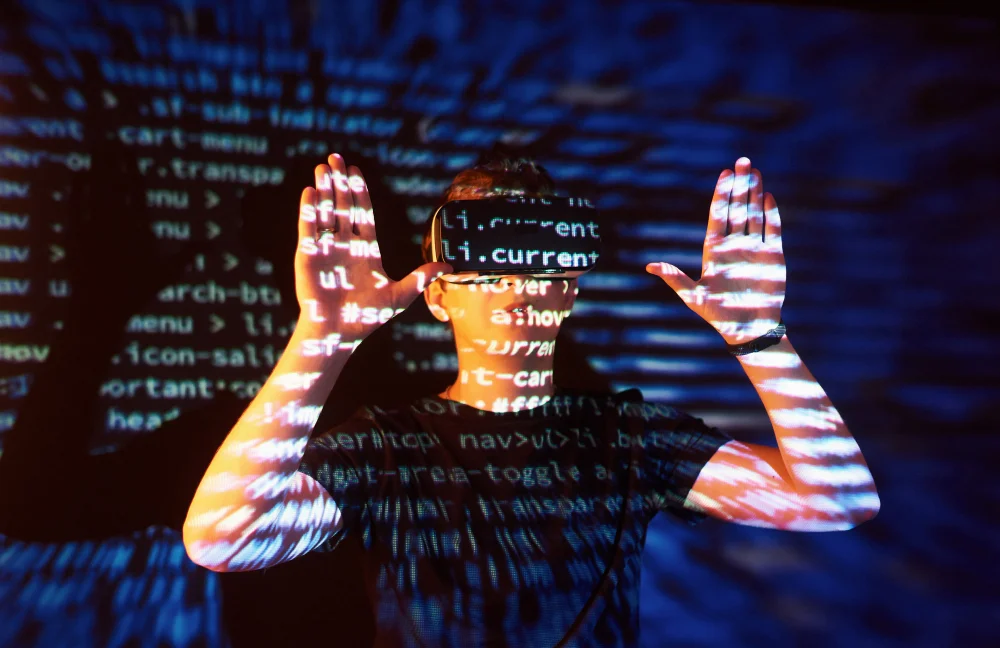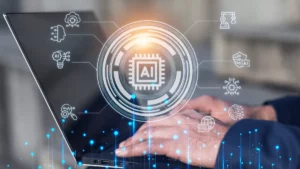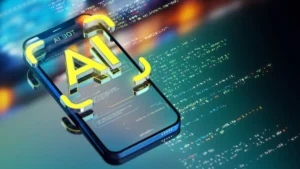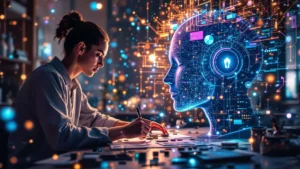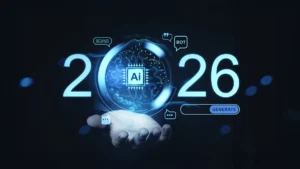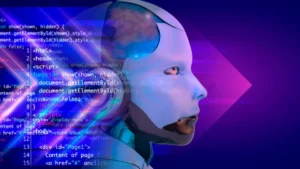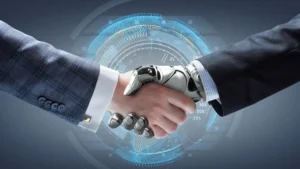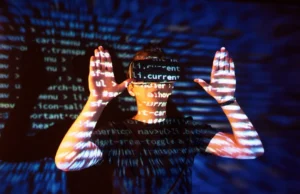The question “Can code be written by AI?” has become one of the most debated topics in the tech world. Artificial Intelligence can now generate thousands of lines of code, fix bugs, and even assist in building applications. But the real question is not can AI write code, it’s can AI truly understand what it writes?
Coding is not just about producing text that compiles; it’s about solving problems creatively, understanding human intent, and designing systems that grow and adapt. While AI tools like ChatGPT, Copilot, and AlphaCode have made impressive progress, they remain tools, not thinkers. They follow patterns, not principles. They predict outcomes, not understand consequences.
The truth is, AI can generate code, but it cannot create meaning. And that’s what makes all the difference.
What It Really Means to “Write Code”
Before judging whether AI can write code, it’s vital to understand that coding is far more than just typing syntax. It’s a creative and analytical process that transforms an idea into a logical, working system capable of solving real-world problems.
Human coders think critically, anticipate future challenges, and design systems that adapt and grow over time. AI, on the other hand, doesn’t truly understand intent or context. It predicts patterns based on data, not meaning.
While it can generate code snippets, it lacks foresight, creativity, and emotional intelligence. Coding requires architecture design, debugging, scalability, and optimization, all areas where human intuition still reigns supreme.
Why AI Fails to Understand True Programming Logic
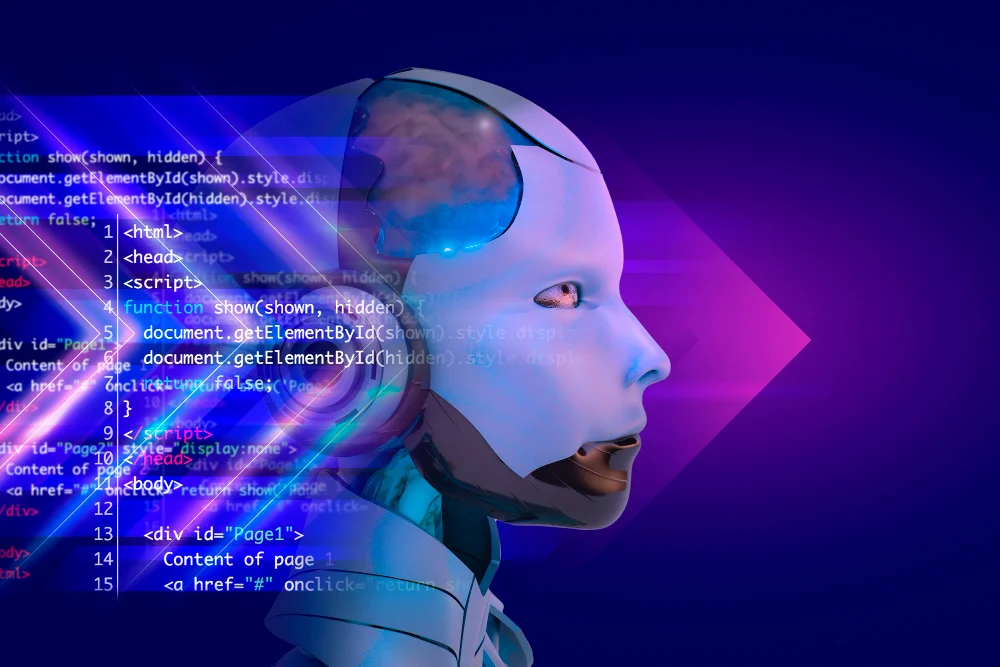
When people ask, “Can code be written by AI?”, they often mistake pattern recognition for real understanding. AI models, trained on millions of examples, can replicate the structure and syntax of programming languages, but they don’t grasp the why behind each decision.
Choosing the right algorithm, handling edge cases, or ensuring ethical design still demands human intelligence. If you ask AI to build a login system, it might produce code that works, yet it won’t automatically include encryption, prevent SQL injection, or follow GDPR compliance, because it doesn’t understand purpose, only patterns.
Why AI Still Falls Short in Real Programming
- AI follows examples; humans create new solutions.
- Machine learning lacks intent, emotion, and accountability.
- True programming involves ethics, design patterns, and adaptability.
- Code must serve humans, and only humans understand human needs.
The Illusion of Perfection: AI Code vs. Human Code
One of AI’s biggest appeals is its apparent perfection. It doesn’t tire, doesn’t complain, and delivers code instantly. But that illusion collapses under real-world conditions.
When integrated into large projects, AI-written code often leads to inconsistencies, logical gaps, and unhandled exceptions. It may run in isolation but fail when interacting with APIs, databases, or external systems. Humans, on the other hand, foresee these interactions and design accordingly.
Developers don’t just solve what is asked; they anticipate what might happen next. AI can’t think beyond its prompt.
Example:
AI might generate an e-commerce checkout script, but it won’t anticipate how to handle simultaneous orders, payment failures, or multi-currency logic. Humans design for chaos. AI can only model patterns.
The Hidden Risks of AI-Generated Code
While AI promises speed and efficiency, it also brings unseen risks that could undermine long-term software integrity.
1. Security Vulnerabilities
AI doesn’t understand cybersecurity principles; it reproduces common patterns, including unsafe ones. Many AI-generated functions fail penetration testing because they don’t properly validate input or handle authentication.
2. Intellectual Property Issues
AI models train on public repositories and might unknowingly reproduce copyrighted or licensed code. This creates legal and ethical dilemmas for companies using AI-written code commercially.
3. Technical Debt
Developers often spend more time reviewing, debugging, or rewriting AI-generated code than writing their own. This leads to higher technical debt, delayed timelines, and unpredictable maintenance costs.
Why Human Creativity Still Rules in Programming
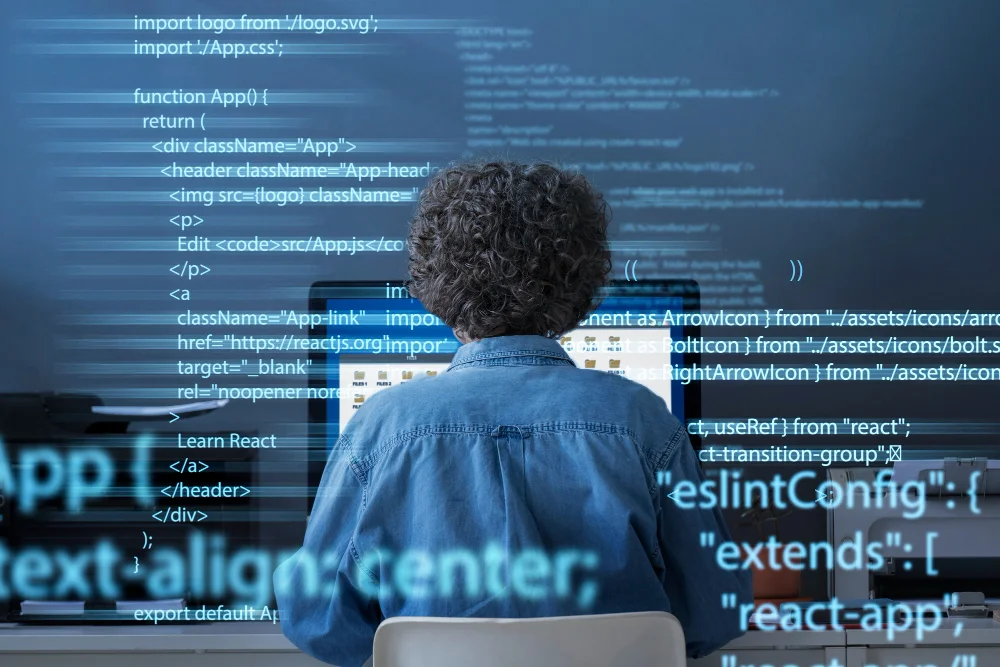
Programming is an art as much as a science. It’s about imagining possibilities, questioning assumptions, and solving problems creatively. These qualities don’t exist in AI, not because it’s weak, but because it lacks intent.
A developer can look at a problem and say, “This approach is risky but elegant,” or “This method improves user experience.” AI doesn’t understand elegance, usability, or empathy. It doesn’t care if the code is maintainable, accessible, or sustainable.
Humans design for meaning. Machines are only designed for output.
That’s why, despite AI’s speed, it still can’t replicate the deep logic and empathy-driven decision-making behind great software.
Collaboration, Not Replacement: Can Code Be Written by AI?
While the answer to “Can code be written by AI?” is technically “yes,” the better answer is “not completely and not wisely.”
AI can act as a co-pilot, suggesting snippets, automating tests, and accelerating repetitive work. But replacing human coders entirely would be catastrophic for innovation, security, and software ethics.
Smart teams use AI as a partner, a tool for productivity, not a substitute for creativity. Developers who learn to collaborate with AI will thrive, while those who rely blindly on it will struggle with quality and accountability issues.
The Power of Human-AI Partnership:
- AI can automate testing and documentation, but not creative architecture.
- Humans must validate every line of machine-generated code.
- Collaboration ensures speed without sacrificing responsibility.
- The future of coding lies in human-AI synergy, not replacement.
The Emotional and Ethical Dimension of Coding
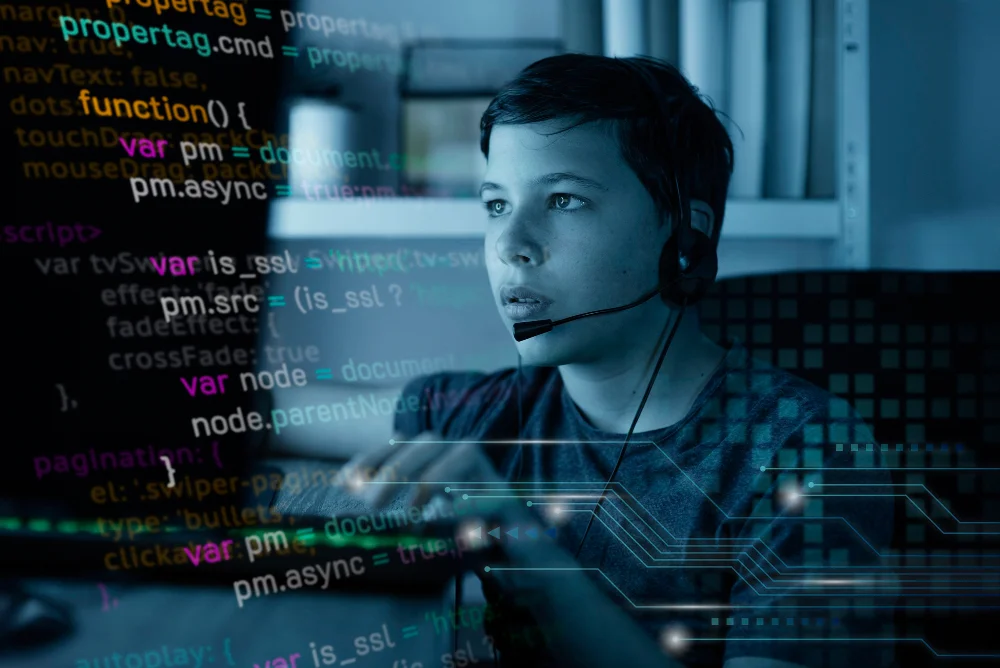
Humans don’t code in a vacuum. Every line of code reflects values of safety, fairness, privacy, or usability. These aren’t technical concerns; they’re moral choices. AI lacks a moral compass.
When code affects healthcare systems, finance platforms, or autonomous vehicles, human ethics are irreplaceable. A machine cannot feel accountability. It cannot take responsibility for harm caused by a faulty algorithm.
This ethical gap is why AI will always need a human hand at the keyboard, not just for control, but for conscience. For developers looking to enhance their coding efficiency while maintaining ethical oversight, exploring the best AI coding assistant tools can provide practical support and guidance.
The Future of Coding: Intelligence Needs Intuition
AI will keep evolving, becoming more capable, faster, and more accurate. But intelligence without intuition is dangerous. Until AI develops reasoning, emotional context, and domain understanding, it will remain an assistant, never an engineer.
The coders of tomorrow won’t just write syntax; they’ll manage AI-driven workflows, teach models, and ensure responsible use. True progress isn’t about replacing human intelligence, it’s about augmenting it.
For those looking to explore tools that enhance AI productivity while maintaining ethical standards, platforms like Claude AI provide a practical solution for developers seeking to integrate AI responsibly.
Conclusion: Can Code Be Written by AI?
So, can code be written by AI? Technically, yes. But practically, no, not in the way humans write it. AI can mimic patterns, generate templates, and automate tasks, but it cannot think, reason, or empathize. True coding requires vision, judgment, and imagination qualities that only humans possess.
AI should be our assistant, not our architect. The best future isn’t one where machines replace coders but one where both work together, where AI handles the routine, and humans handle the remarkable. Until machines can understand purpose, not just process, code will always need a human soul behind it.

